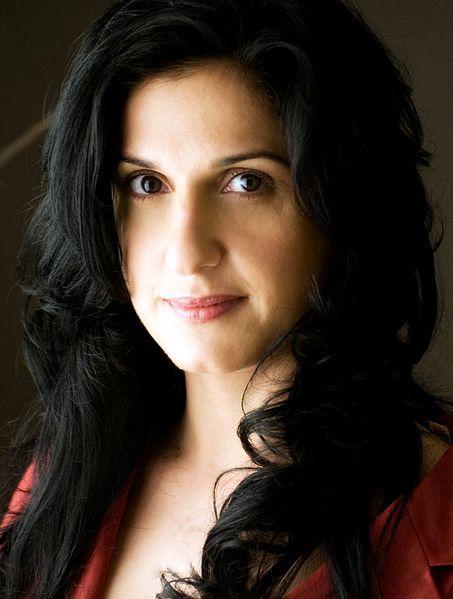
Dorit Rabinyan was born in Israel on September 25, 1972 to a family who had emigrated from Iran in the early 1950s.
She served as a journalist for the Israel Defense Force magazine during her military service and continued writing for various newspapers after completing her term in the army.
Sindh Courier
Dorit Rabinyan is perhaps the only author of Israel whose novel ‘All the Rivers’, based on a love story of a Jewish woman and Palestinian man, was banned in 2017 by her own country’s education ministry.
In an interview, while talking about reasons behind ban on her book, Dorit Rabinyan had said, “I think it was because I showed the other [Palestinians] to be as human as Israelis. Liati (a female character of novel), who is Israeli, allows herself to see Hilmi, a Palestinian, in different ways. She doesn’t avoid stereotypes, she doesn’t avoid feeling fear, suspicion, or all those elements in her education that shaped how Israelis perceive Palestinians. But she allows herself to get more personal knowledge, to acknowledge that someone from the other side is an individual. She explores his identity and sees how much their two identities brush up against each other, and how much they are rooted in the same climate”.
“So, when you read the Ministry of Education’s report, you can see that this is what they were afraid of: They could see the impact of the emotional voyage that my character is going through and it was intimidating for them,” Dorit had said
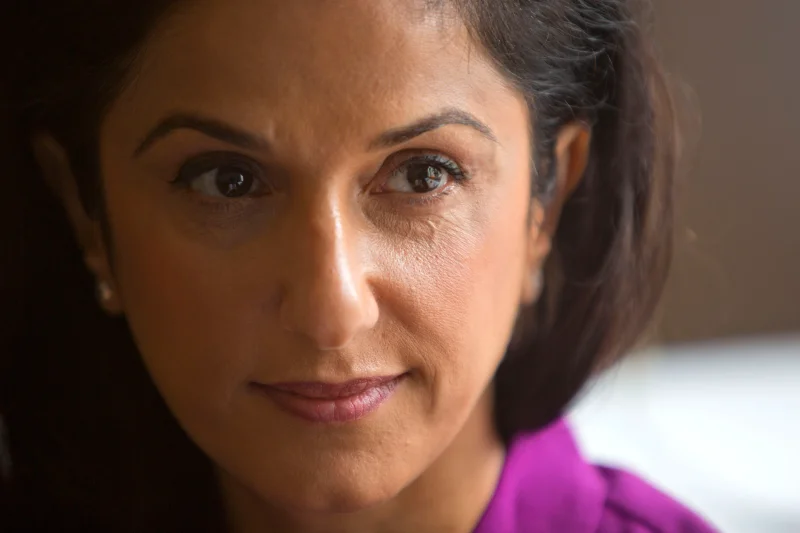 Speaking about the novel and Jewish woman, the author said novel highlights the guilt that runs through Liati’s character. “Even before she meets Hilmi and before she commits this “crime” (according to her Zionist education), she felt guilt. Once she meets Hilmi, she feels that her being on the stronger side of the conflict demands her acknowledgment. It’s not only classic Jewish guilt because she betrays her community and, in a way, turns her back on the religious command not to assimilate. It’s also a very Israeli kind of guilt”.
Speaking about the novel and Jewish woman, the author said novel highlights the guilt that runs through Liati’s character. “Even before she meets Hilmi and before she commits this “crime” (according to her Zionist education), she felt guilt. Once she meets Hilmi, she feels that her being on the stronger side of the conflict demands her acknowledgment. It’s not only classic Jewish guilt because she betrays her community and, in a way, turns her back on the religious command not to assimilate. It’s also a very Israeli kind of guilt”.
“My generation is different than the current generation, which is swept up in the nationalistic wave of a more extremist political climate. My generation had tasted the intoxicating drop of promise that it can be different. The peace process of the Oslo Accords under Yitzhak Rabin’s leadership gave us an unforgettable option: Peace was a possibility. The millennial who were banned from reading my book in high school never experienced the possibility that their lives did not have to be dominated and shaped by a conflict. They don’t know that they can be liberated from this burden of being oppressors and occupiers. Even the taste of guilt has been different for my generation than for the current one,” Dorit elaborated.
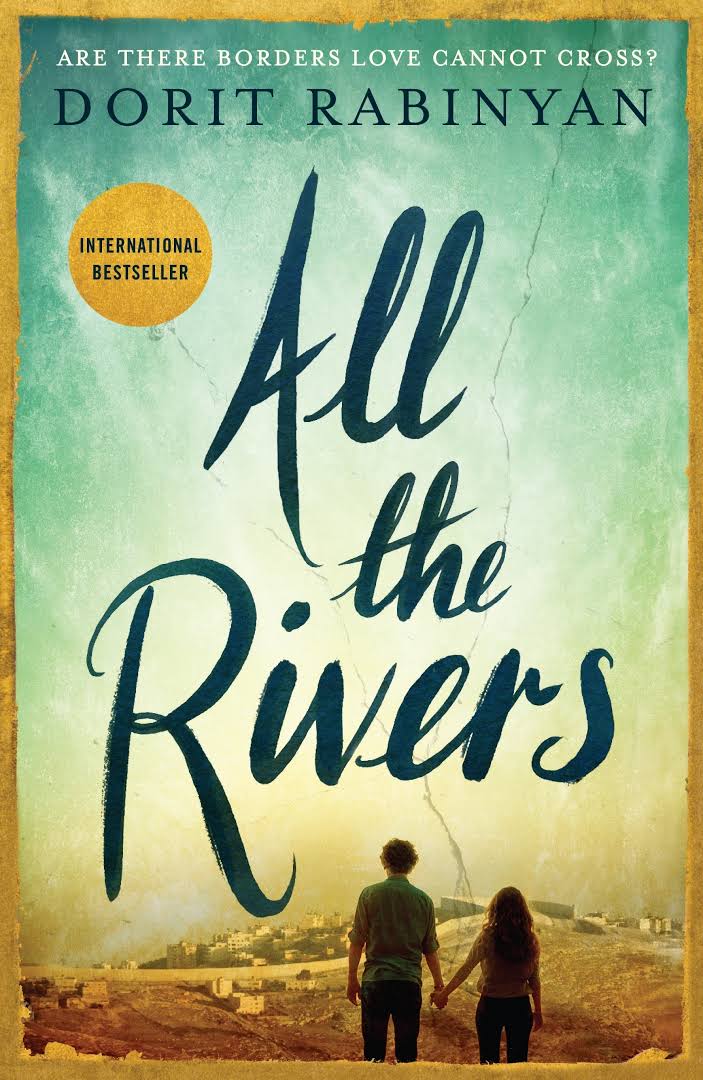 “All the Rivers suggests empathy. That is the magic that literature has — empathy. Even by dipping into the identity of the narrator and characters you read, it makes you taste what it is to be somebody else.”
“All the Rivers suggests empathy. That is the magic that literature has — empathy. Even by dipping into the identity of the narrator and characters you read, it makes you taste what it is to be somebody else.”
As it is said that relationship of two characters was based on author’s own relationship with a Palestinian artist, Dorit also spoke on it.
“It was inspired by a bright, talented, charismatic Palestinian artist named Hassan whom I got involved with in New York when I was living there in 2002. This was the first time I became close with a Palestinian. He was part of a group of Palestinian scholars and artists that I was hanging out with. I was empowered by this encounter and exploration of the other, but I never thought I would write a novel out of it. But there was something so demanding about this relationship. I needed to maintain the dialogue, to keep the conversation that we had going.”
“You know, people in real life are not as dramatic as literary characters. We were more easygoing. Our relationship wasn’t as formulated, it was more natural. I made Liati reflective of me in that I took my bad qualities and put them in her: She’s so self-critical, fearful, and honest. But I’m more forgiving toward myself than she is.”
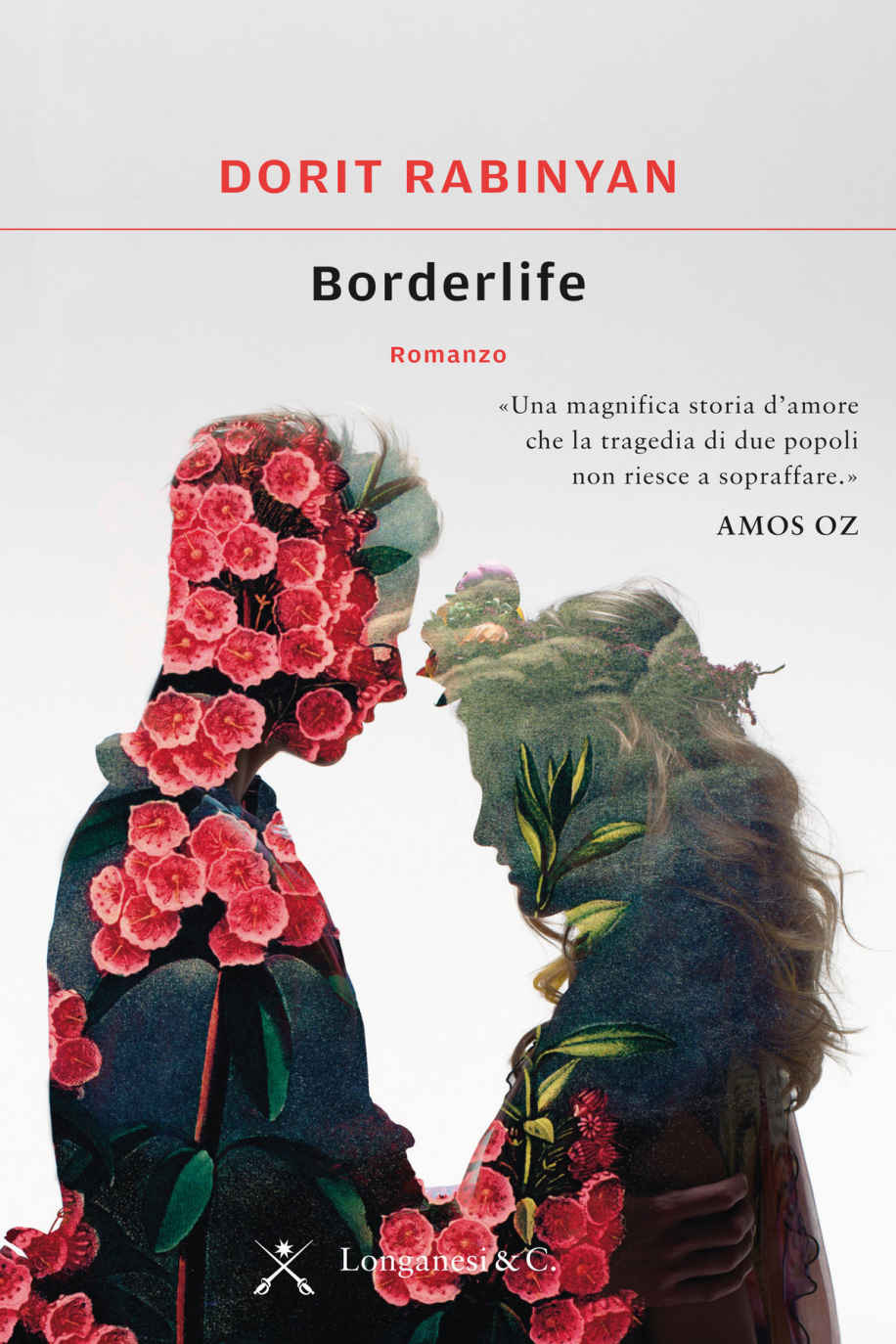 About the novel, which was first published with the title ‘Borderlife’, and later as ‘All the Rivers’, Dorit says, “When my editor at Random House suggested “All the Rivers” I thought it had a poetic resonance. It takes the theme of the sea and puts it at the front of the novel. It doesn’t say the sea, but it implies that all the rivers run to the sea. The sea captures so much of our desires and so much of our anxieties; it plays a major role not only in the novel but also in the conflict. It’s the only force of nature that is still biblical, that is the same and hasn’t changed. The land has changed and the landscape can be reshaped but this is the view that both our and their ancient ancestors, who were also around this region, saw when they looked westward. If there’s a conclusion to come to, it is that they’re not that different. They have so many more similarities, being brought up under the sun and facing this view. What may be seen as a wall is only a curtain. It’s intimidating to acknowledge how much you have in common with your enemy”.
About the novel, which was first published with the title ‘Borderlife’, and later as ‘All the Rivers’, Dorit says, “When my editor at Random House suggested “All the Rivers” I thought it had a poetic resonance. It takes the theme of the sea and puts it at the front of the novel. It doesn’t say the sea, but it implies that all the rivers run to the sea. The sea captures so much of our desires and so much of our anxieties; it plays a major role not only in the novel but also in the conflict. It’s the only force of nature that is still biblical, that is the same and hasn’t changed. The land has changed and the landscape can be reshaped but this is the view that both our and their ancient ancestors, who were also around this region, saw when they looked westward. If there’s a conclusion to come to, it is that they’re not that different. They have so many more similarities, being brought up under the sun and facing this view. What may be seen as a wall is only a curtain. It’s intimidating to acknowledge how much you have in common with your enemy”.
All the Rivers, originally published as ‘Borderlife’, was awarded the Bernstein Prize. In January 2016 it became the center of a political scandal in Israel when the Ministry of Education banned the book from the high school curriculum. ‘All the Rivers’ has been translated into seventeen languages.
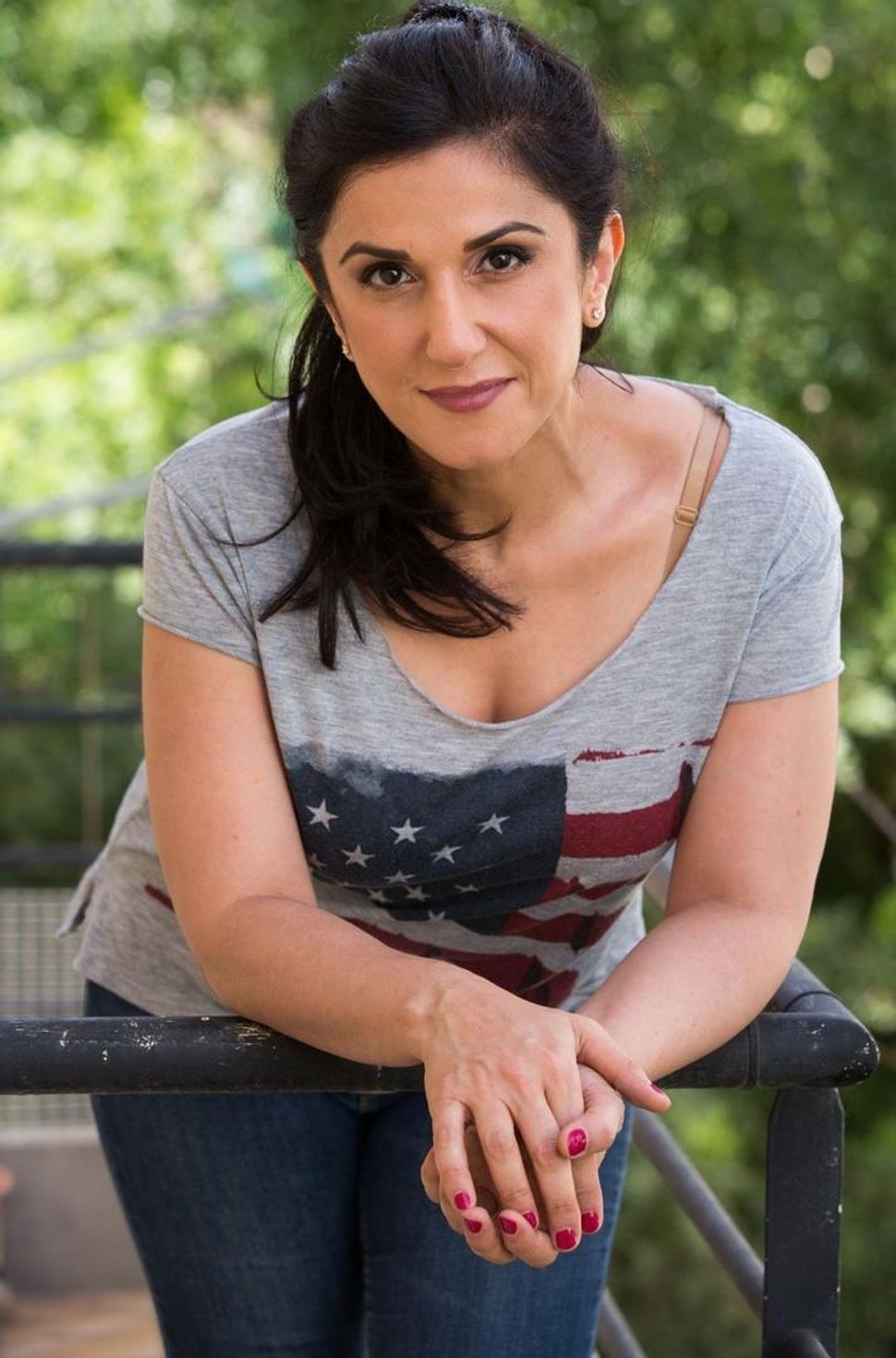 The novel that begins with two FBI agents interrogating a Middle Eastern woman about terrorist ties, which might lead a reader to expect a political thriller. It is one year after the 9/11 attacks, and a concerned citizen has reported a suspicious person patronizing a cafe in New York City’s Greenwich Village. When they question her in her apartment, they learn that Liati Benyamini, 29, is an Israeli whose seditious activity has merely been to compose emails on her laptop from right to left — and in Hebrew, not Arabic.
The novel that begins with two FBI agents interrogating a Middle Eastern woman about terrorist ties, which might lead a reader to expect a political thriller. It is one year after the 9/11 attacks, and a concerned citizen has reported a suspicious person patronizing a cafe in New York City’s Greenwich Village. When they question her in her apartment, they learn that Liati Benyamini, 29, is an Israeli whose seditious activity has merely been to compose emails on her laptop from right to left — and in Hebrew, not Arabic.
Later that day, Liati returns to the nearby Café Aquarium. There she meets Hilmi, a handsome and endearingly klutzy artist who has been living in Brooklyn’s Bay Ridge for the past four years. The two are soon smitten, and the novel becomes a rhapsodic love story. However, since Hilmi is a Palestinian from Ramallah and Liati a Jew from Tel Aviv, their intense relationship is shaped and imperiled by the hostile pressures of geopolitics.
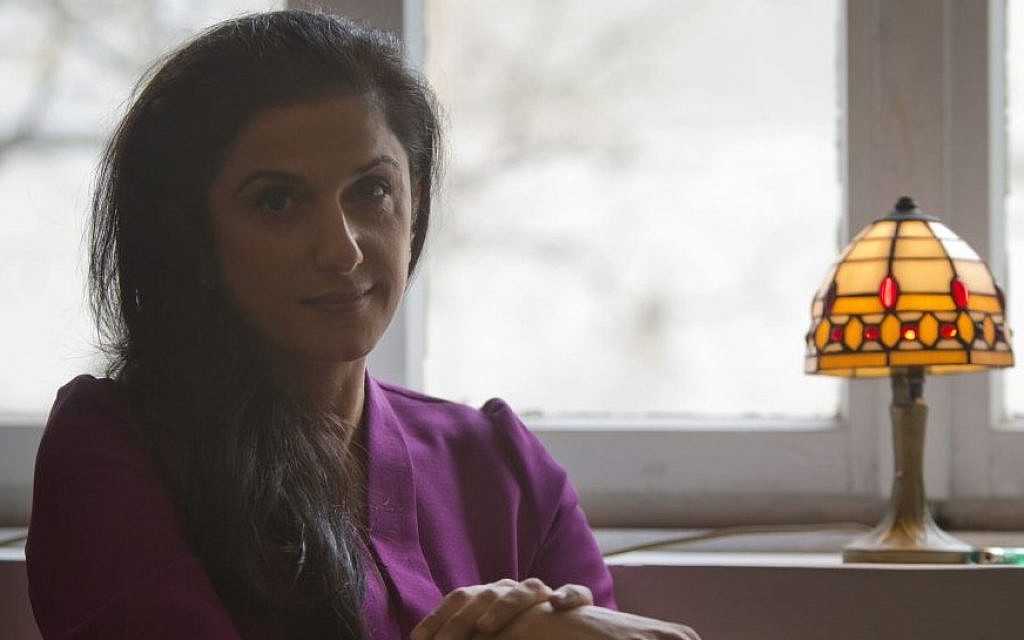 “All The Rivers,” Dorit Rabinyan’s third novel, comes trailed by clouds of controversy. After its publication in 2014, a committee of academic specialists selected the book for required reading in high school literature classes. The Israeli Ministry of Education vetoed the idea, warning that the novel might encourage impressionable adolescents to make light of intermarriage. While confessing he had not read it, Minister of Education Naftali Bennett denounced Rabinyan’s book as a threat to Israel’s national identity.
“All The Rivers,” Dorit Rabinyan’s third novel, comes trailed by clouds of controversy. After its publication in 2014, a committee of academic specialists selected the book for required reading in high school literature classes. The Israeli Ministry of Education vetoed the idea, warning that the novel might encourage impressionable adolescents to make light of intermarriage. While confessing he had not read it, Minister of Education Naftali Bennett denounced Rabinyan’s book as a threat to Israel’s national identity.
Endowed with the lure of forbidden fruit, “Borderlife,” the original Hebrew title, became an immediate best-seller. It was also sold well in the 17 languages into which it has been translated. The title of Jessica Cohen’s English translation appropriates a line by Israeli poet Avot Yeshurun, which Rabinyan uses as an epigraph: “All the rivers run into the sea; yet the sea is not full….”
In the novel, Hilmi, who grew up on the West Bank but never had a chance to visit the Mediterranean Sea, insists that what connects Israelis and Palestinians is more important than what divides them. “In the end all the rivers flow into the same sea,” he insists.
“All The Rivers” is an impassioned record of what Liati, the narrator, calls “these mad and beautiful days,” her intense love affair with a talented stranger whom she, a veteran of the Israel Defense Forces, has been conditioned to regard as hostile, or at least treyf. Hilmi has, in fact, spent four months in an Israeli prison for painting anti-Zionist graffiti on a wall in Hebron. The effort to keep their taboo relationship secret from friends and family puts a strain on the couple, as does the fact that Hilmi favors a single bi-national state and Liati a two-state solution. However, eros overcomes wariness, at least for their November-to-May romance. The realization that on May 20 Liati will return alone to her Jewish life in Tel Aviv concentrates their liaison. “How can you love with a deadline,” a friend asks, “with a stopwatch running?”
During the months that Liati and Hilmi spend together, the United States invades Iraq, and Israel builds a wall. But political events are mere background noise to the couple’s obsession with each other. Though Liati, who graduated from Tel Aviv University with a degree in English literature and linguistics, came to New York as a Fulbright scholar, she rarely mentions her research. Her story is set almost entirely amid the streets, restaurants and subway stops of New York City, neutral territory in which both the Israeli and the Palestinian are free of the conventions and constraints that would have kept them apart back home. Since neither knows the other’s language, they conduct their relationship in English, a foreign tongue that enables them to grow new identities.
Hundreds of thousands of Jews who married non-Jews in the United States and Russia are refraining from immigrating to Israel because of the country’s rabbinical establishment and the conversion laws. Some 350,000 immigrants from the Former Soviet Union are still registered in the Interior Ministry as “others” – that is, not as Jews. Israeli families are torn apart cruelly because of disgraceful rabbinical doubt cast on the Jewishness of some of their members. Thousands of mixed couples have fallen in love, and the non-Jew in the pair may come to Israel with the hope of becoming one of us, only to encounter the Interior Ministry’s vicious tangle of regulations. All of these people are deeply wounded by the unfortunate remark of the Education Ministry official against “intimate relations between Jews and non-Jews.”
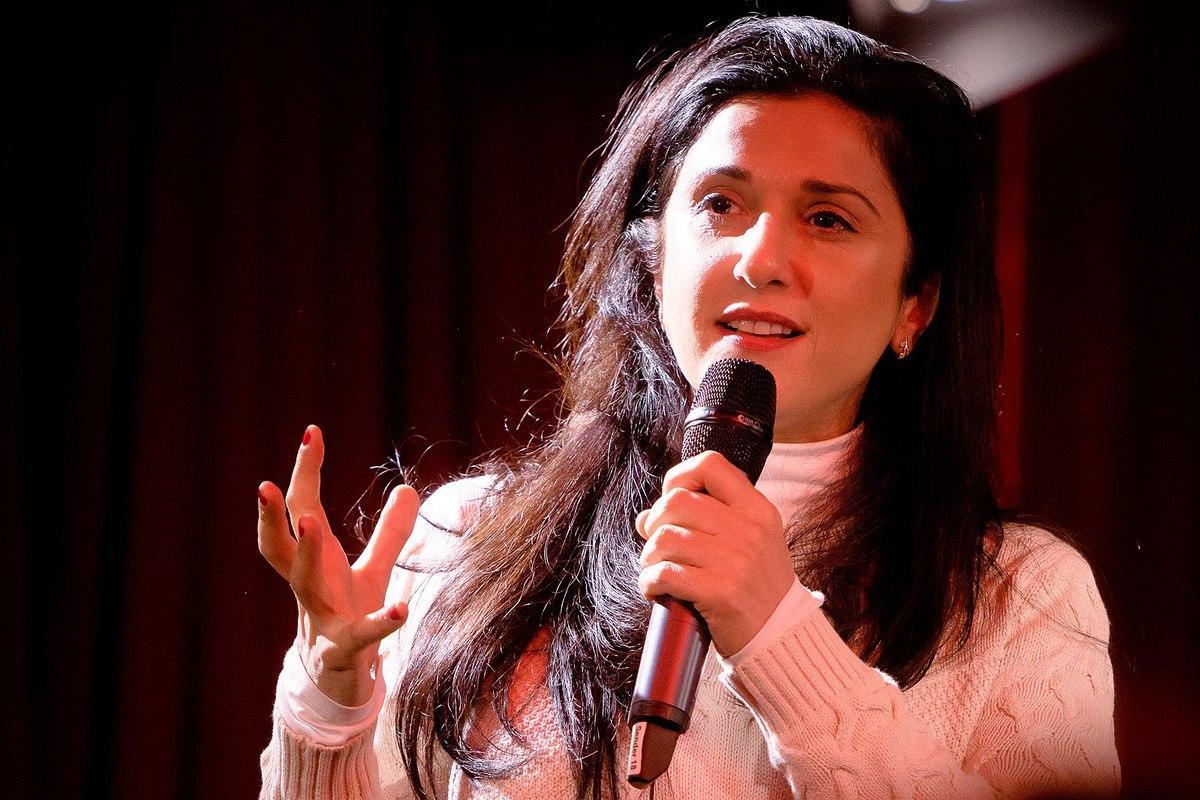 The novel was published in 2014 when the Gaza War was going on.
The novel was published in 2014 when the Gaza War was going on.
“I started getting phone calls from readers who were really clinging to my book while they were sitting in shelters,” Doris said, recalling Israelis’ experiences of running to safe rooms, bomb shelters and stairwells during rocket attacks.
“They would read from one siren to another with missiles flying over their heads,” she said. “People from southern Israel were calling in and thanking me for reflecting their reality.”
Dorit Rabinyan began seeing pictures posted by Israeli soldiers carrying the book with them into Gaza, their guns in one hand and “All the Rivers” in the other.
“One wrote to say, ‘I’m not fighting against orgasms, only against Hamas,’” she said. “It was something I could never have expected.”
She recalled meeting British Indian writer Salman Rushdie at the famed New Yorker Pen Festival, and asking him how he managed to keep on writing novels when a Muslim fatwa was issued ordering his death after the publication of his 1988 novel, “The Satanic Verses.”
“I don’t give them the pleasure of toughening me,” said Rabinyan of her critics. “My vulnerability and fragility are part of who I am… They tried to pull me into this mud-fight, with monstrous interpretations of my writing. But they’re not my partners, my partners are my readers.”
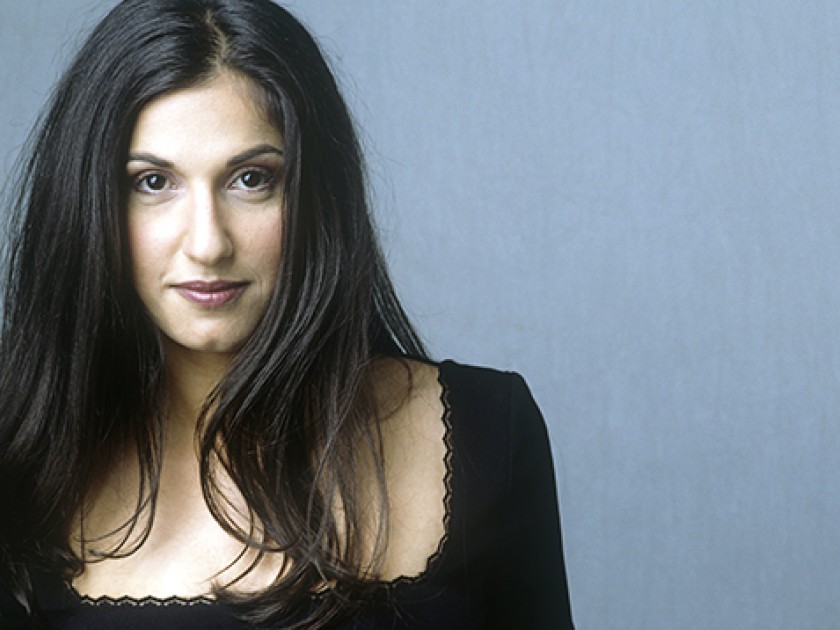 Early Life and Family Background
Early Life and Family Background
Dorit Rabinyan was born in Israel on September 25, 1972 to a family who had emigrated from Iran in the early 1950s and settled in Kfar Saba, where she grew up and attended school. She served as a journalist for the Israel Defense Force magazine during her military service and continued writing for various newspapers after completing her term in the army. Her first novel was inspired by her grandmother’s stories. Her Hebrew, the language she calls her home, brilliantly emulates her grandmother’s Persian language and story-telling style. Unlike some of her contemporary Mizrahi writers who use non-Hebrew vocabulary, Rabinyan, in her narrative, transfers the flow and rhythm of her Persian heritage into idiomatic Hebrew. In what appears to be a seamless move between two cultures, Rabinyan manages to forge a multicultural Israeli identity.
Since the publication of her first novel, Dorit Rabinyan has been acknowledged as an outstanding author. Richly textured language, acute observation, and empathy gained her wide readership in Israel and beyond. Her critique of women’s marginalization is central to her first two novels, whose main characters are Mizrahi women. The first novel builds an imaginary return to her Jewish/Persian roots in Iran while the second looks at Mizrahi integration into Israeli society. Her third novel takes her woman character to the heart of the Israeli/Palestinian conflict.
Her selected works including Persian Brides (novel), 1995, translated into English 1998; Our Weddings (1998), translated into English 2001; And Where Was I? (Picture book), 2006 [Hebrew]; All the Rivers (2014), children books, and screenplay (Shuli’s Fiancé, 1997) have established her position at the center of the Israeli literary scene. She has won numerous prestigious awards, among them the Wiener Prize (1996), Best Drama of the Year Award (1997), the Prime Minister Prize (2001), and the Bernstein Prize (2015).
________________
Source: Jewish Women’s Archive, Jewish Book Council, Amazon, Forward, Haaretz, Time, Times of Israel, The Deborah Harris Agency